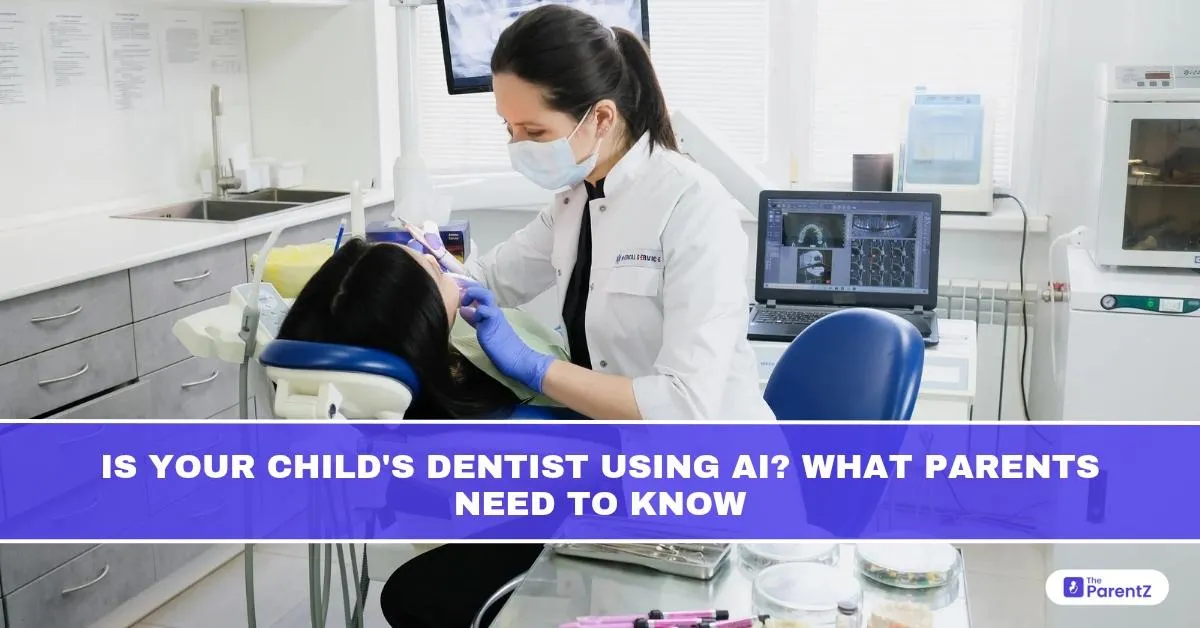As a parent, you want the best for your child, especially when it comes to their health. But with so many new technologies entering medical and dental care, it can be hard to know what’s truly helpful and what’s just a trend. One of the most important innovations in recent years is artificial intelligence (AI) and yes, it’s already making its way into your child’s dental clinic.
What Exactly Is AI in Dentistry?
Artificial intelligence (AI) refers to computer systems that can mimic human thinking, learning from data, recognizing patterns, and making decisions. In dentistry, AI doesn’t replace your child’s dentist. Instead, it acts as an assistant, helping the dentist analyze X-rays, spot early signs of problems, and make more accurate decisions about your child’s oral health.
Think of AI like a supercharged second opinion, fast, unbiased, and based on thousands of previous cases.
How AI Is Already Helping in Pediatric Dentistry
Many parents don’t realize that AI is quietly working behind the scenes in some dental clinics. Here’s where it’s making a difference:
- Cavity Detection on X-rays: AI can highlight areas of enamel damage or decay that may be invisible to the naked eye, especially in the early stages when treatment is easier and less invasive.
- Growth and Eruption Tracking: AI tools can analyze digital images to predict how your child’s teeth will develop or whether they’re at risk for crowding or delayed eruption.
- Early Gum Disease Monitoring: For older children, AI can assess bone levels and detect the early signs of gingivitis or gum recession.
- Customized Orthodontic Planning: AI can simulate how your child’s teeth will move with braces or aligners and help plan the most effective treatment path.
- Behavior Prediction Models: Some advanced systems can even flag which children might struggle with dental anxiety, allowing clinics to prepare accordingly.
Why AI Matters for Your Child
As a parent, you may wonder: Why should I care if my child’s dentist uses AI? The answer is simple, it can lead to:
- Faster diagnosis: AI processes X-rays within seconds and points out potential problems for the dentist to review.
- More accurate treatment: Dentists can make more confident decisions, especially in borderline or early-stage cases.
- Minimally invasive care: Catching a cavity early may mean a tiny filling instead of a crown or pulp therapy.
- Better communication: AI tools often come with visual aids and reports, making it easier for parents to understand what’s going on.
- Preventive focus: AI helps shift dentistry from fixing problems to preventing them, which is especially valuable for growing children.
Questions You Can Ask Your Child’s Dentist
If you’re curious about whether your clinic uses AI or how it might benefit your child—you can ask:
- “Do you use any AI-based tools to read my child’s X-rays?”
- “How do you detect early cavities or orthodontic issues?”
- “Can you show me how these technologies help guide treatment decisions?”
- “Is AI used in your practice for monitoring growth or gum health?”
These questions not only show you’re involved but also encourage the clinic to keep up with safer, smarter practices.
Is AI Safe for Children?
Yes. AI in dentistry is non-invasive, radiation-free, and only interprets the data already being collected—such as digital X-rays or photographs. It doesn’t make final decisions, but instead provides support to the dentist, who still has the final say.
Importantly, all AI tools used in dental care must comply with healthcare standards and data privacy laws. If you’re ever unsure, feel free to ask your provider how your child’s data is being stored or used.
The Future of AI in Pediatric Dentistry
While AI is still evolving, its role in children’s dentistry is only going to grow. We may soon see:
- Real-time cavity detection during brushing with smart toothbrushes.
- Predictive tools to warn when a child is at high risk for decay or orthodontic issues.
- Virtual dental assistants that help parents stay on top of appointments, fluoride use, or nutrition tips.
For now, AI is best seen as a helpful tool, one that works silently behind the scenes to support the dentist in giving your child safer, smarter, and more comfortable care.
Final Thoughts
AI isn’t about replacing your child’s dentist; it’s about empowering them to provide the highest level of care with speed, accuracy, and compassion. When used wisely, this technology can make a real difference in your child’s dental health journey.
So the next time you’re in the clinic, don’t be afraid to ask: “Is AI part of my child’s care?” The answer may surprise and reassure you.





Be the first one to comment on this story.